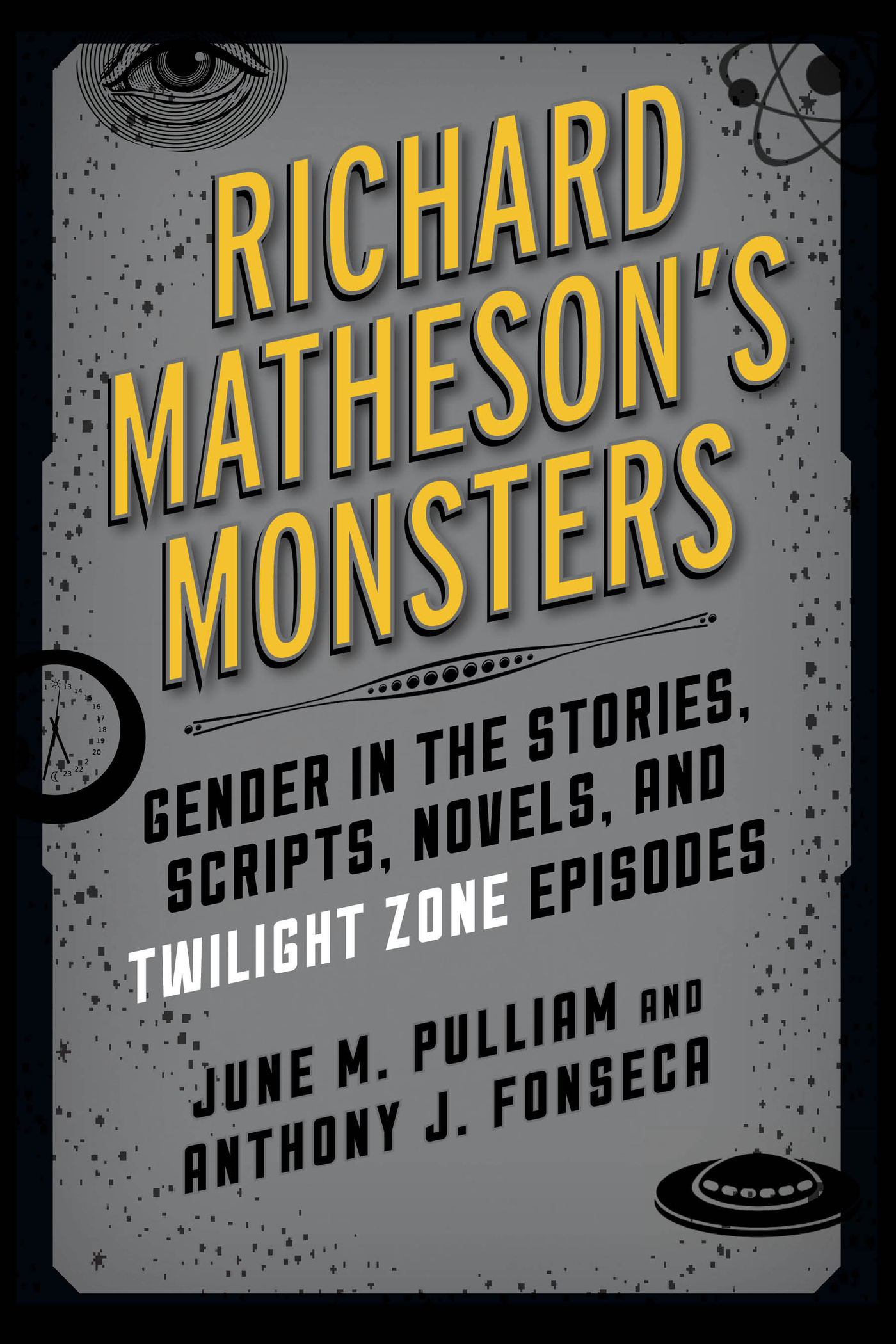Richard Mathesons Monsters
Studies in Supernatural Literature
Series Editor: S. T. Joshi
Lovecraft and Influence: His Predecessors and Successors, edited by Robert H. Waugh, 2013
Lord Dunsany, H. P. Lovecraft, and Ray Bradbury: Spectral Journeys, by William F. Touponce, 2013
Critical Essays on Lord Dunsany, edited by S. T. Joshi, 2013
Ramsey Campbell: Critical Essays on the Modern Master of Horror, edited by Gary William Crawford, 2014
Lord Dunsany: A Comprehensive Bibliography, Second Edition, by S. T. Joshi and Darrell Schweitzer, 2014
Disorders of Magnitude: A Survey of Dark Fantasy, by Jason V. Brock, 2014
The Unique Legacy of Weird Tales: The Evolution of Modern Fantasy and Horror, edited by Justin Everett and Jeffrey H. Shanks, 2015
Richard Mathesons Monsters: Gender in the Stories, Scripts, Novels, and Twilight Zone Episodes, by June Pulliam and Anthony J. Fonseca, 2016
Richard Mathesons Monsters
Gender in the Stories, Scripts, Novels, and Twilight Zone Episodes
June Pulliam
Anthony J. Fonseca
ROWMAN & LITTLEFIELD
Lanham Boulder New York London
Published by Rowman & Littlefield
A wholly owned subsidiary of The Rowman & Littlefield Publishing Group, Inc.
4501 Forbes Boulevard, Suite 200, Lanham, Maryland 20706
www.rowman.com
Unit A, Whitacre Mews, 26-34 Stannary Street, London SE11 4AB
Copyright 2016 by Rowman & Littlefield
All rights reserved. No part of this book may be reproduced in any form or by any electronic or mechanical means, including information storage and retrieval systems, without written permission from the publisher, except by a reviewer who may quote passages in a review.
British Library Cataloguing in Publication Information Available
Library of Congress Cataloging-in-Publication Data
Names: Pulliam, June Michele, author. | Fonseca, Anthony J., author.
Title: Richard Matheson's monsters : gender in the stories, scripts, novels, and Twilight zone episodes / June M. Pulliam, Anthony J. Fonseca.
Description: Lanham : Rowman & Littlefield, 2016. | Series: Studies in supernatural literature | Includes bibliographical references and index.
Identifiers: LCCN 2015037528| ISBN 9781442260672 (cloth : alk. paper) | ISBN 9781442260689 (ebook)
Subjects: LCSH: Matheson, Richard, 1926-2013Criticism and interpretation. | Sex role in literature. | Masculinity in literature.
Classification: LCC PS3563.A8355 Z65 2016 | DDC 813/.54dc23 LC record available at http://lccn.loc.gov/2015037528
 TM The paper used in this publication meets the minimum requirements of American National Standard for Information Sciences Permanence of Paper for Printed Library Materials, ANSI/NISO Z39.48-1992.
TM The paper used in this publication meets the minimum requirements of American National Standard for Information Sciences Permanence of Paper for Printed Library Materials, ANSI/NISO Z39.48-1992.
Printed in the United States of America
To some of the significant men in my life: Rick and M. B., for giving me peaceful places to write when everywhere else became too distracting; Mark, for clearing my head; Shane, for talking me down when I needed it; Mikey, for taking long walks with me; and Tobias, for telling me when its time to rest.
Introduction
The Most Famous Horror Author Youve
Never Heard Of
Horror blogger Gregory J. Gbur aptly describes Richard Burton Matheson (19262013) as the most famous horror writer that youve never heard of. While Matheson was a prolific writer during his career, spanning nearly seven decades, he is not a household name like Dean Koontz or Stephen King or Anne Rice. Nevertheless, as Gbur explains, while youve never heard his name, youve seen his work, since Matheson has written so many influential novels and short stories, as well as many of the screenplays adapting them into film and television. Additionally, Matheson was one of three major contributors to the influential television show The Twilight Zone (196064), and wrote the screenplay for the television movie The Night Stalker, which had such high ratings that it was made into a television series that lasted for one season in 1972, as well as a follow-up movie, The Night Strangler (1973).
Nevertheless, Matheson might not like this description of himself as a horror writer. He told Stanley Wiater in an interview that he preferred to be remembered as a storyteller. Mathesons idea for The Shrinking Man came to him while he was watching Ray Milland in Lets Do It Again (1953). In fact, Matheson told Wiater that the majority of his ideas came from seeing poor movies: while the premises of these films intrigued him, he did not pay much attention to them as films, but rather spent time thinking about the premises.
Although Matheson is primarily known as an author of horror and science fiction, he wrote in multiple genres, including the western and romance, and his work often combined elements of many genres. In The Richard Matheson Companion, Wiater and Matthew Bradley go so far as to claim that Matheson is a genre unto himself. The masculinity of his male characters is often in crisis because in the second half of the twentieth century, during which most of his stories are set, women and nonwhites were no longer subordinate to white males, and the jobs traditionally done by blue-collar men had been mechanized. A study of his oeuvre reveals that throughout his writing career, Matheson created characters firmly grounded in the rigid gender hierarchies of the 1950s. His men are threatened by womens sexuality outside of marriage, and sometimes within it. Meanwhile, if men feel emasculated, trapped by the pressure to demonstrate their masculinity as family provider and protector, then women are to blame for everything from being mentally frail (What Dreams May Come), morally weak, and inherently insubordinate (Button, Button), to unable to understand the difficulties of being a man (A Stir of Echoes; Ride the Nightmare), or for just having female bodies (The Shrinking Man; I Am Legend).
Mathesons Masculinities: The Scope of This Text
This book chronicles and examines all aspects of Mathesons writing career, including thematic concerns, authorial techniques, and genre tropes, as well as his influence on contemporaries and later writers. One of the premier authors of the last half of the twentieth century in the science fiction and dark fantasy genres, Matheson began publishing in the early 1950s. By the 1990s he had been honored by various organizations, having been awarded the World Fantasy and Bram Stoker Awards for Lifetime Achievement. Prior to his death in 2013, Matheson was inducted into the Science Fiction Hall of Fame.
Although, to date, there has been a dearth of book-length studies on Matheson, very few modern cross-genre authors can claim the overall impact that he has had on weird fiction (an amalgamation of pure science fiction, horror, and dark fantasy). As a novelist, Matheson wrote two of the benchmark weird novels of the twentieth century: I Am Legend (1954) and The Shrinking Man (1957). As a short story author, he was one of the members of the writing team (along with Rod Serling [192475] and Charles Beaumont [192967]) for The Twilight Zone series. Mathesons imagination produced a handful of tales that became signature pieces for that anthology television series, including the standouts Third from the Sun, Little Girl Lost, Steel, and Nightmare at 20,000 Feet. His tale Button, Button, originally written for the revamped, post-Serling 198589 version of

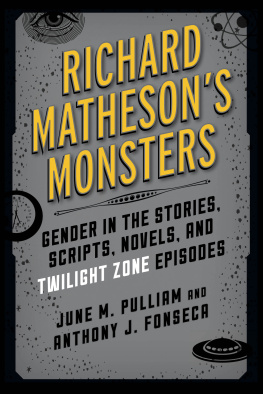
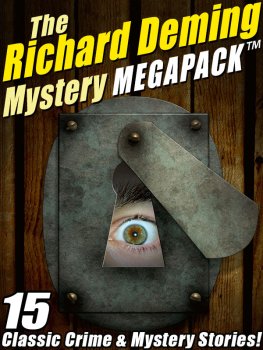
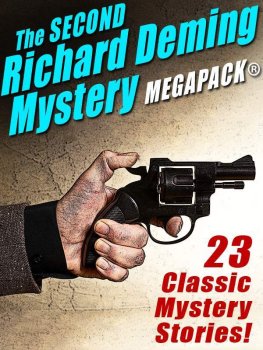
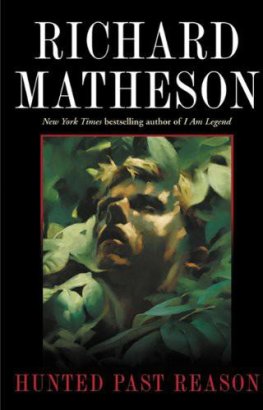
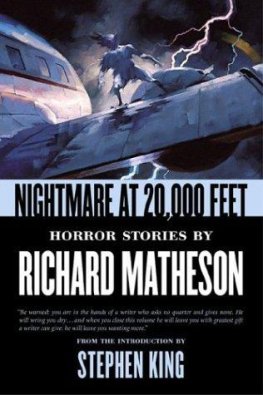

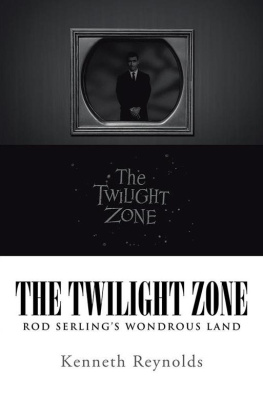
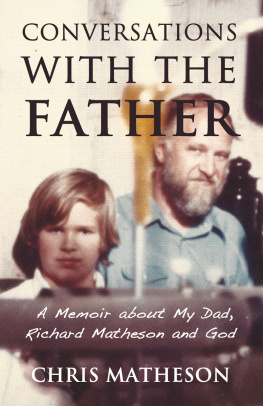
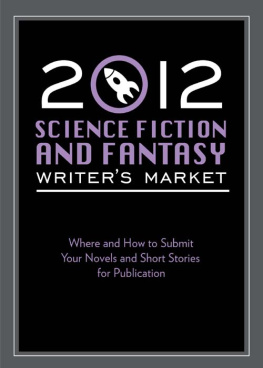
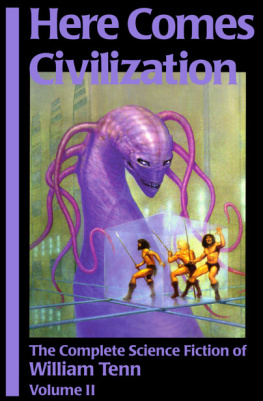
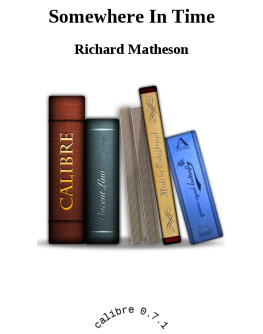
 TM The paper used in this publication meets the minimum requirements of American National Standard for Information Sciences Permanence of Paper for Printed Library Materials, ANSI/NISO Z39.48-1992.
TM The paper used in this publication meets the minimum requirements of American National Standard for Information Sciences Permanence of Paper for Printed Library Materials, ANSI/NISO Z39.48-1992.